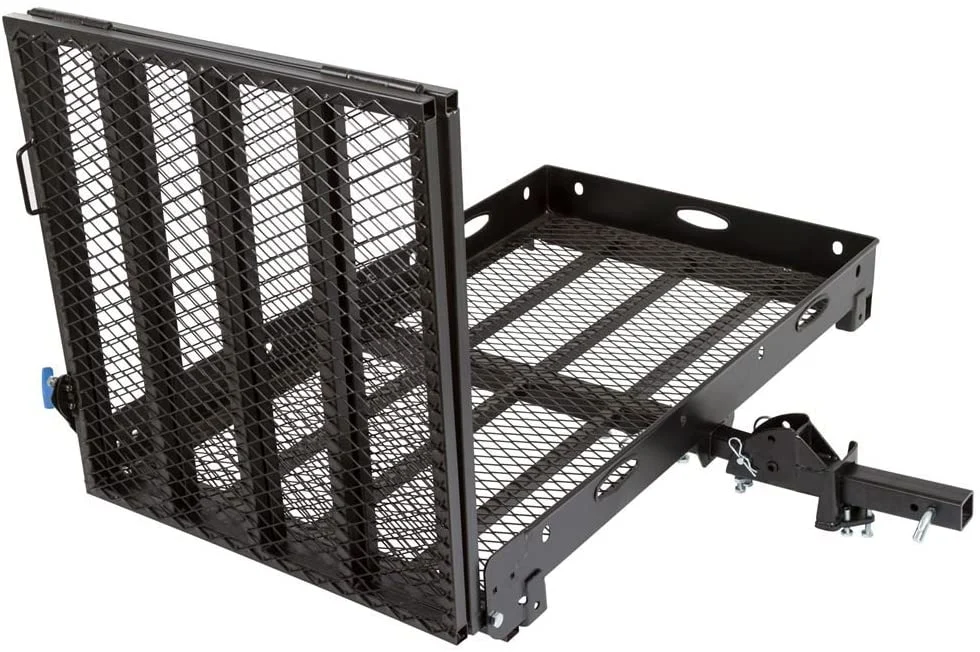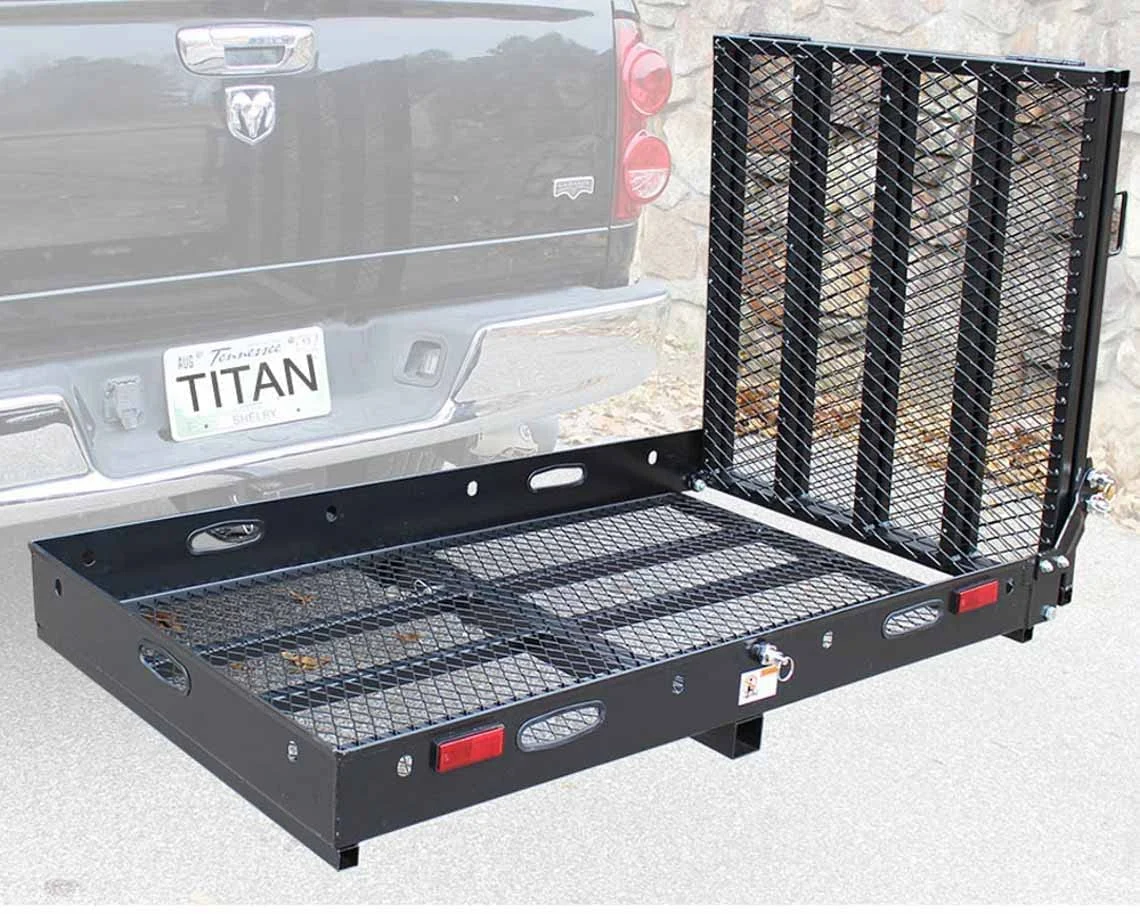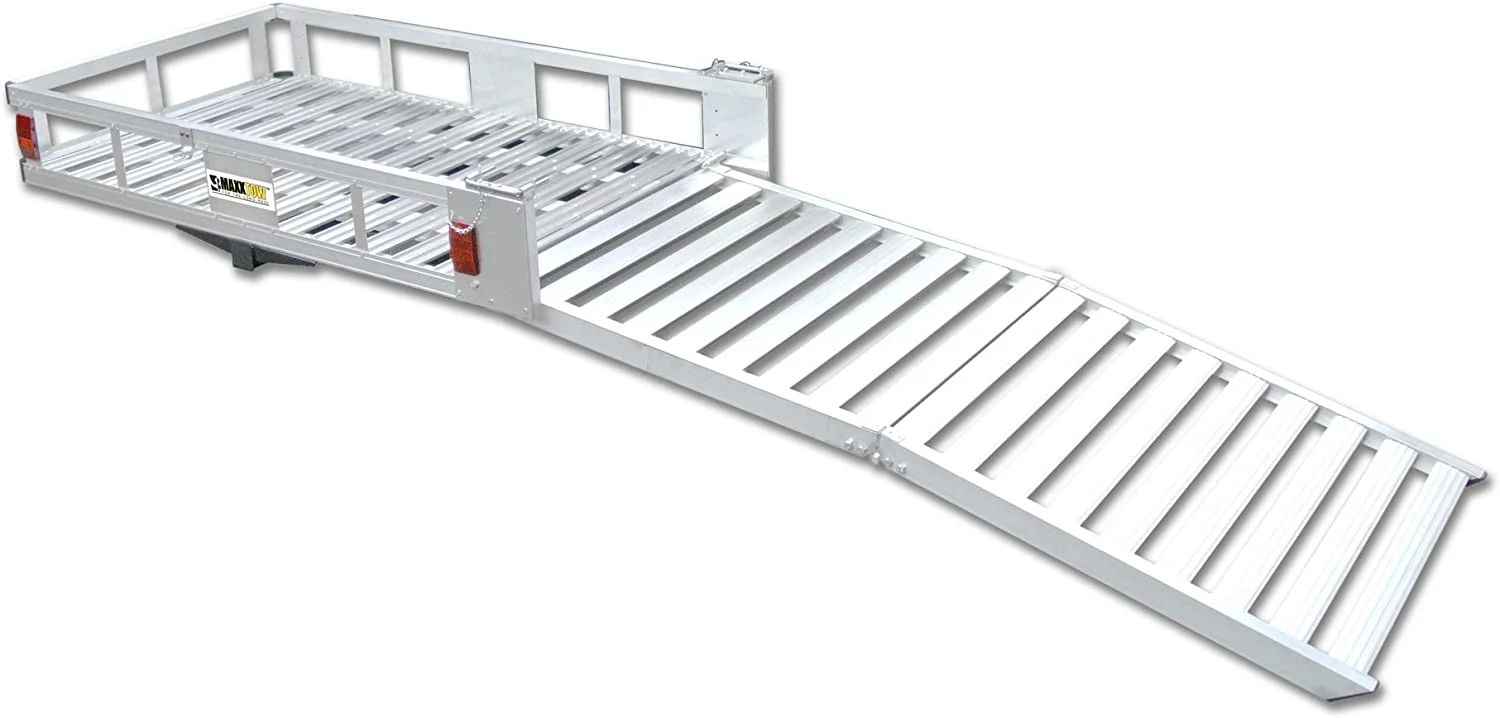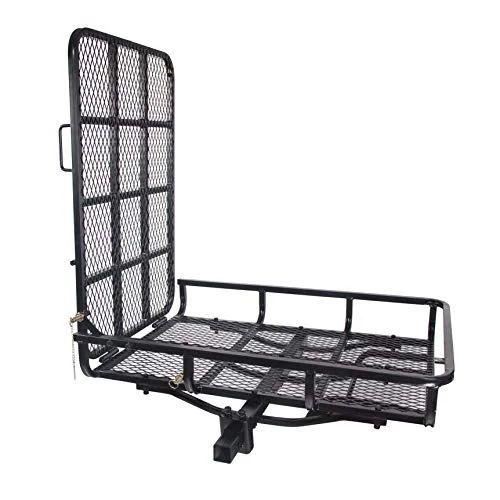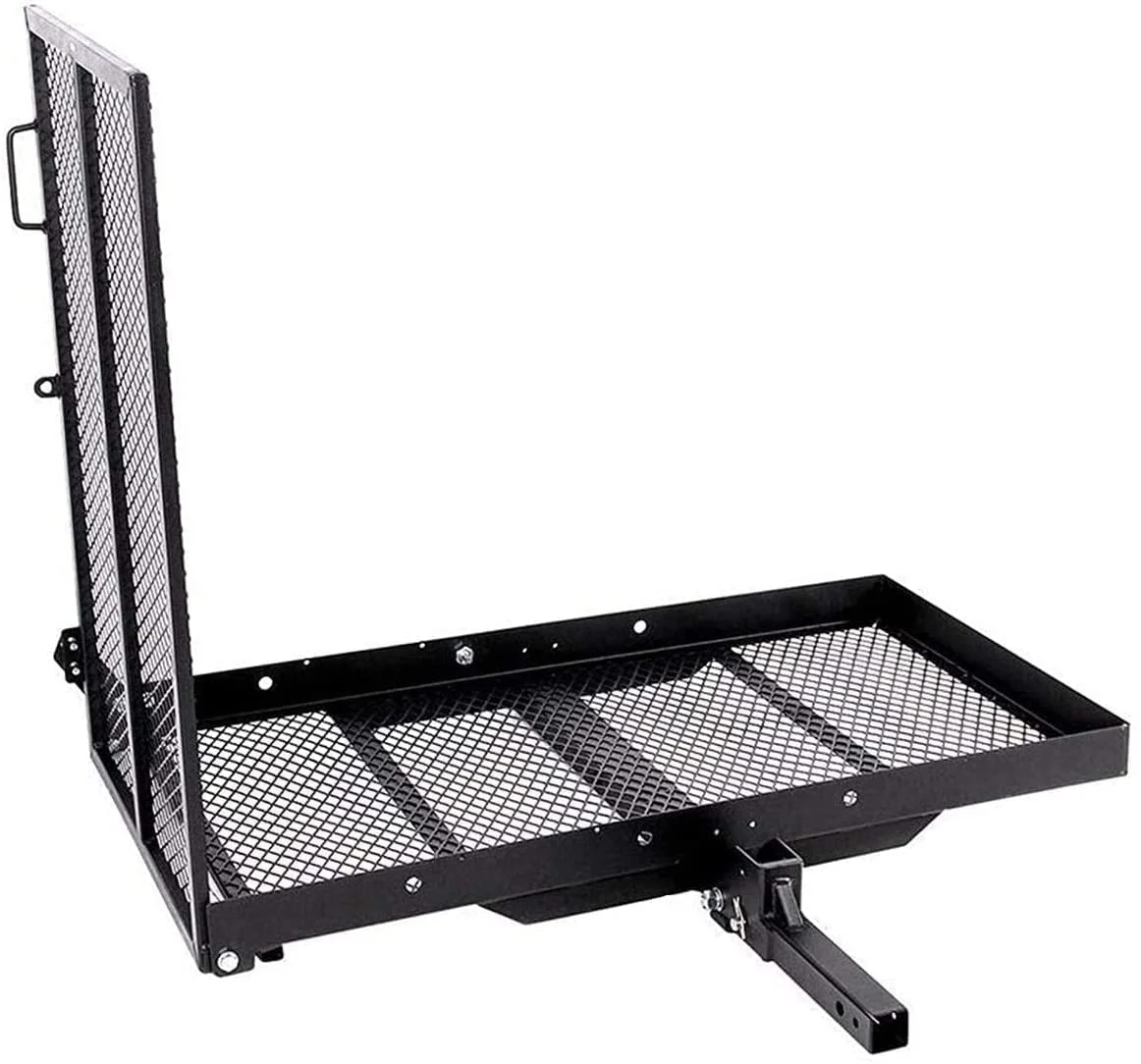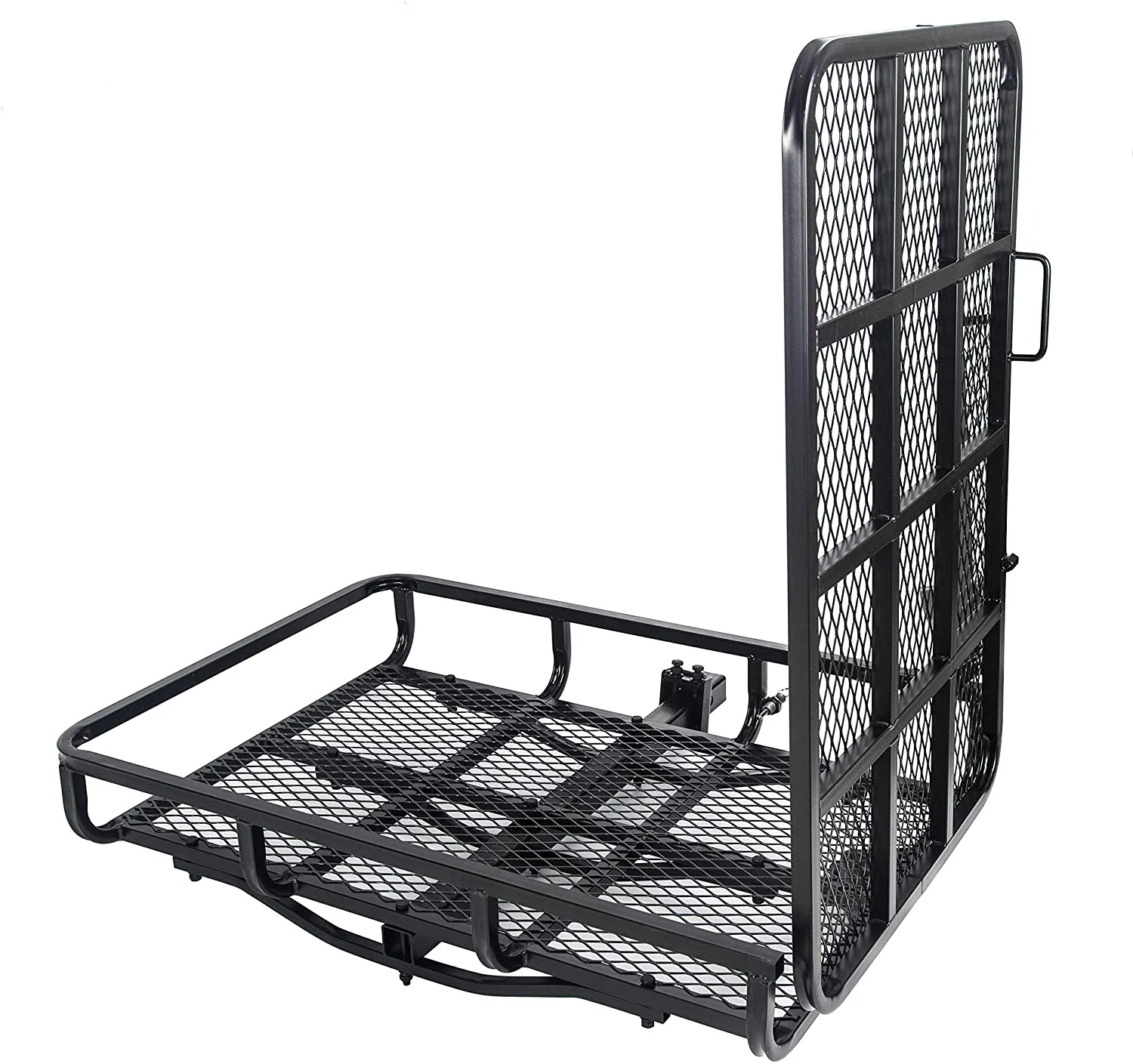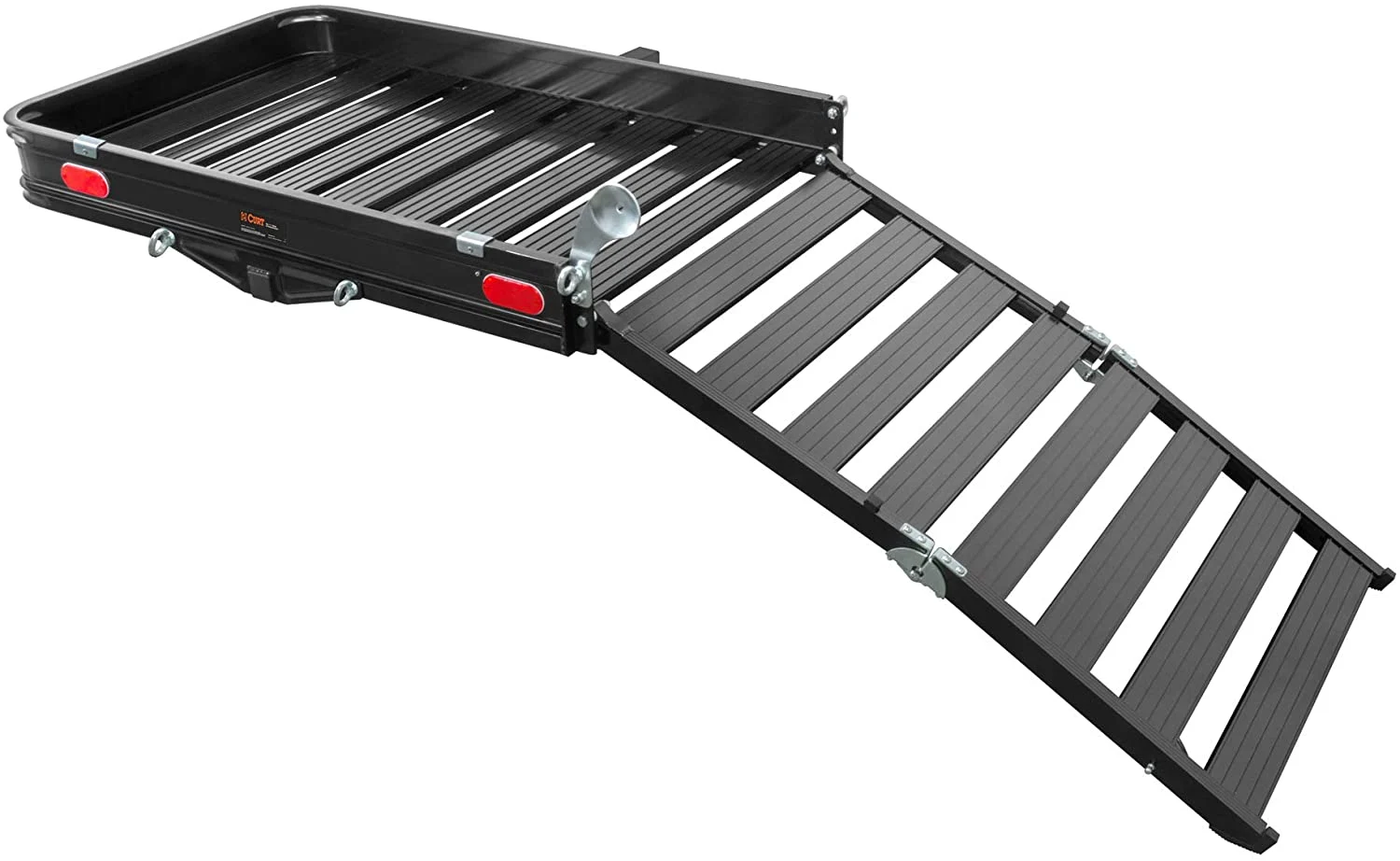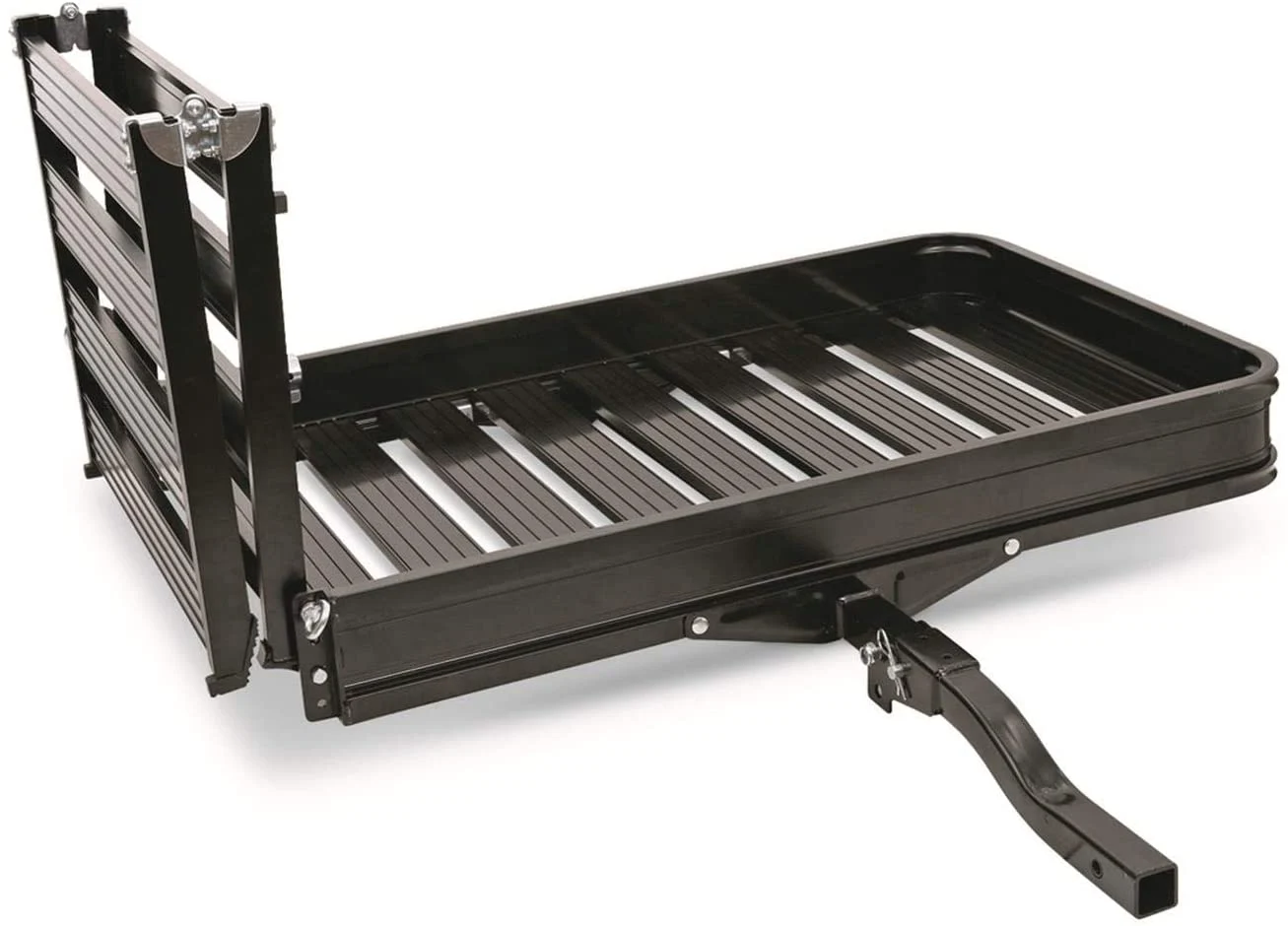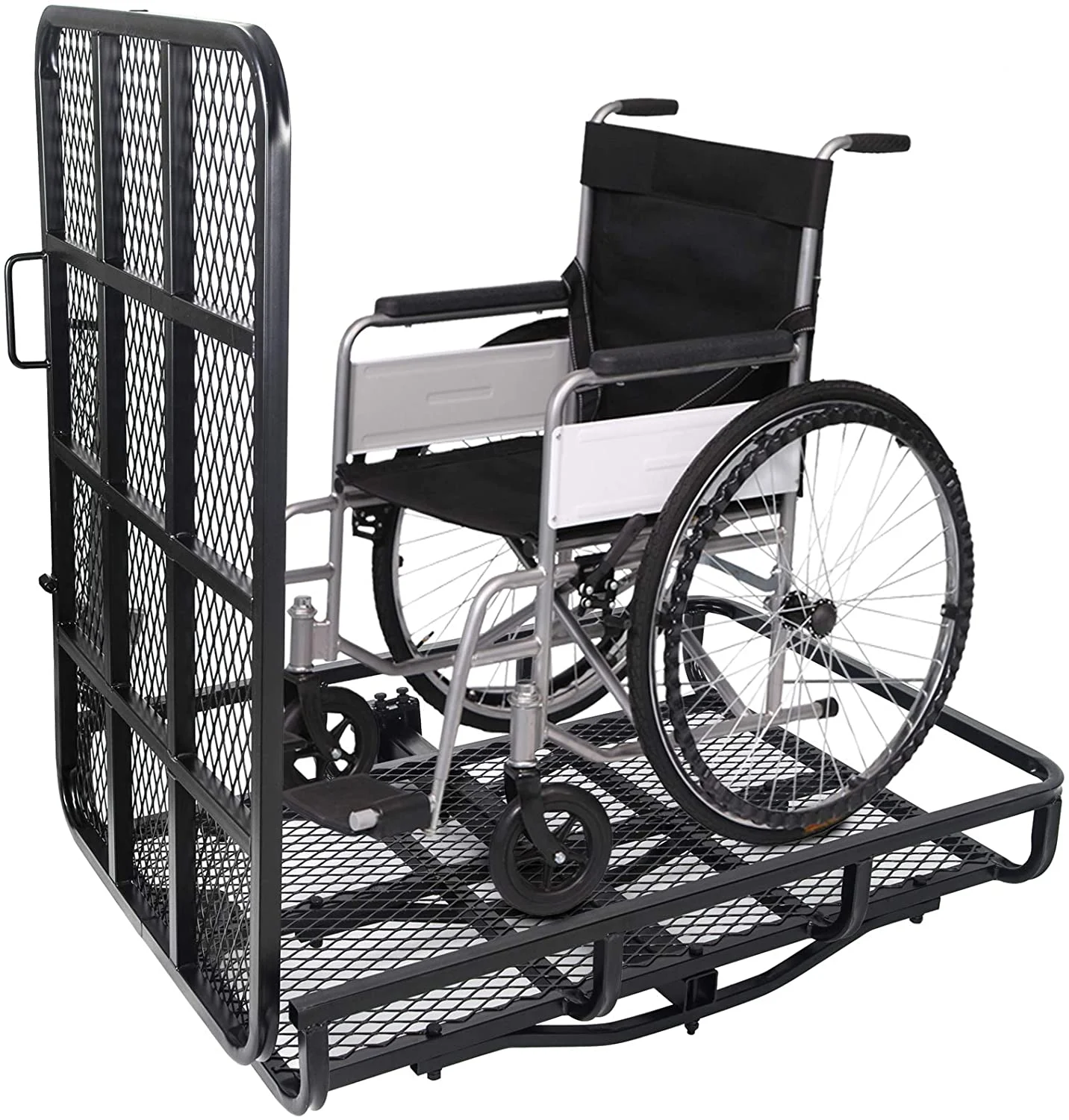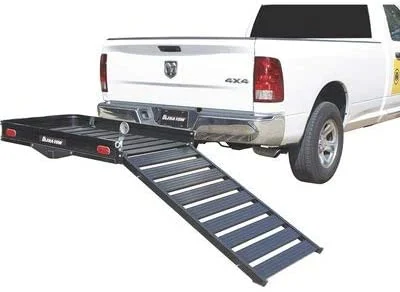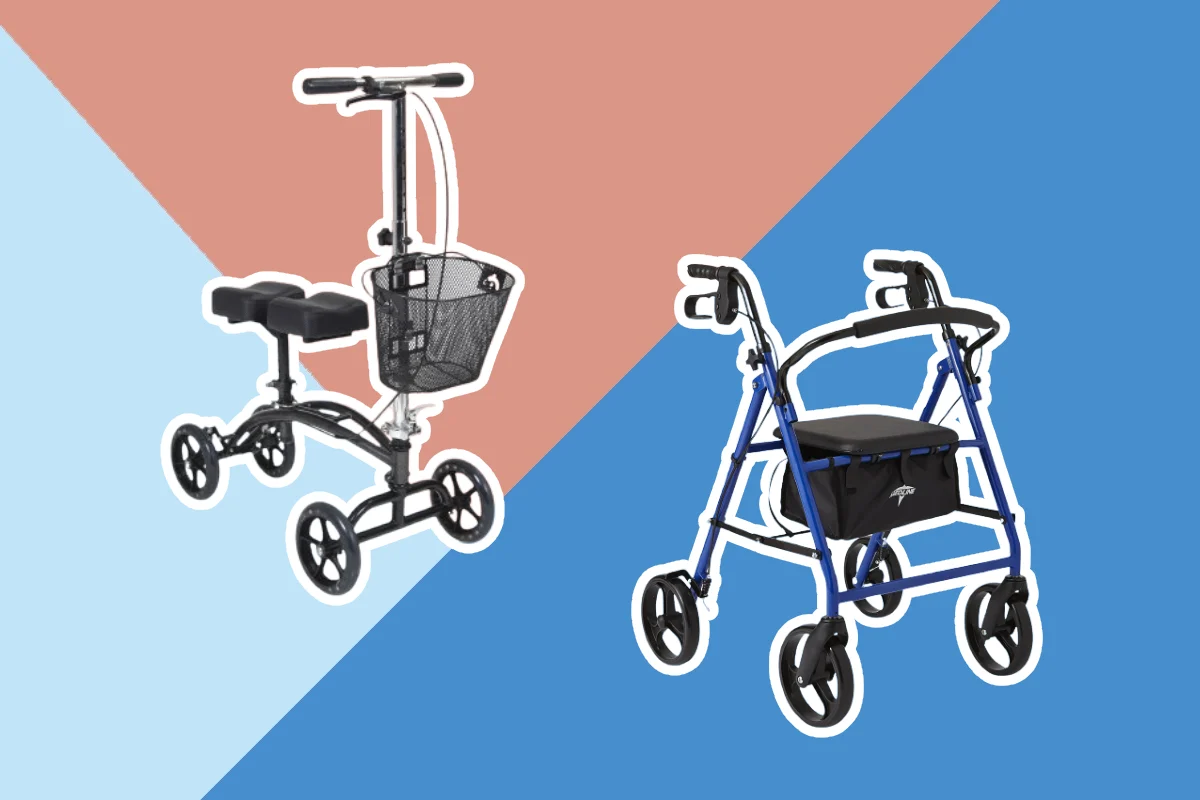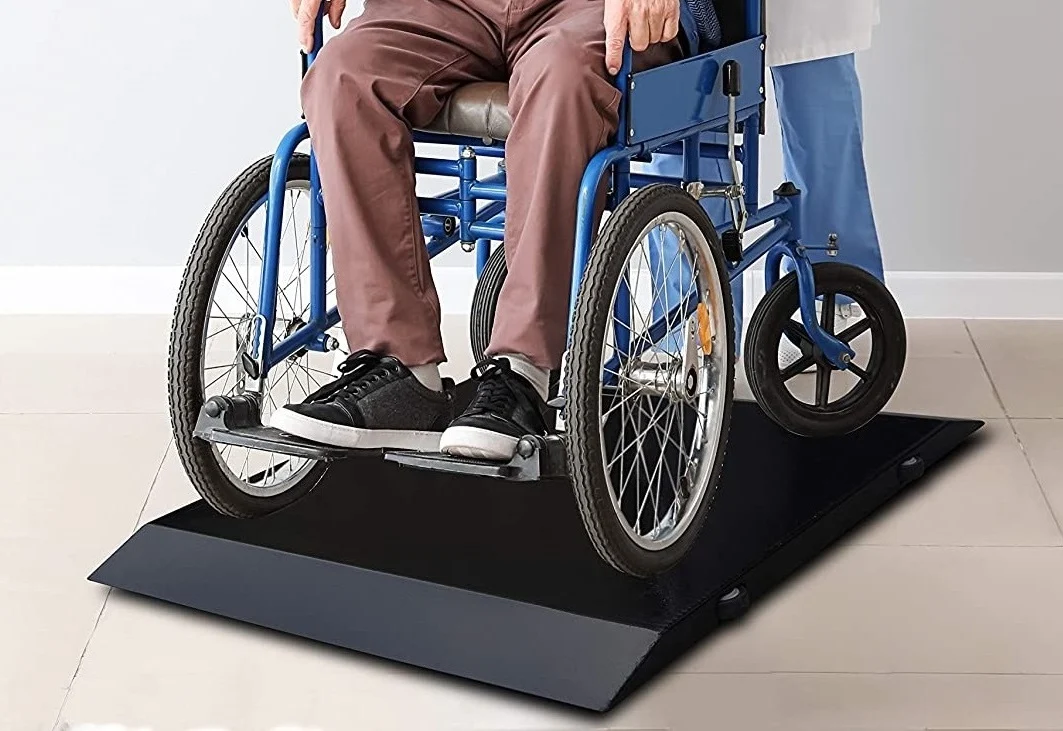Why Do You Need a Wheelchair Carrier?
So, why do you need a wheelchair carrier? Because you don’t want to be stuck at home all the time. You might not be able to walk, but that doesn’t mean you have to stop living your life. Wheelchair carriers are designed to make it easier for people with disabilities to get out into the world to enjoy activities like shopping, dining out, and going to the gym with friends. They also help with your back pain! If you struggle with back pain while carrying your wheelchair or loads, having the carrier will take the weight off your back and help reduce those pains as it has a ramp for more effortless loading.
If you have an SUV or other vehicle with a small boot, you may not be able to fit your wheelchair inside. So, if you need to take your wheelchair with you on a trip and don’t want to leave it behind, you’ll need a carrier for it.
Also, if your wheelchair is particularly heavy or bulky, then a wheelchair carrier will make it easier for you to transport from place to place. You won’t need to lift the wheelchair as the carrier has a ramp for easy loading and offloading. Wheelchair carriers are also helpful when transporting heavy objects such as groceries or luggage over long distances. They come in many different styles and sizes, depending on how much weight they can hold. These products are also known as hand trucks or dollies because they allow people with limited mobility issues to move items from one place to another without having to lift them manually, which can be very difficult if not impossible due to physical limitations caused by health problems such as arthritis or neurological disorders such as Parkinson’s disease (PD).
Important Features
Not all wheelchair carriers are created equal. It is essential to know what features you should look for when purchasing a wheelchair carrier to ensure that it will meet your needs. Many factors influence this decision, including comfort, ease of use, durability, and safety. The following list includes some of the most important things to consider when buying a wheelchair carrier.
Weight capacity
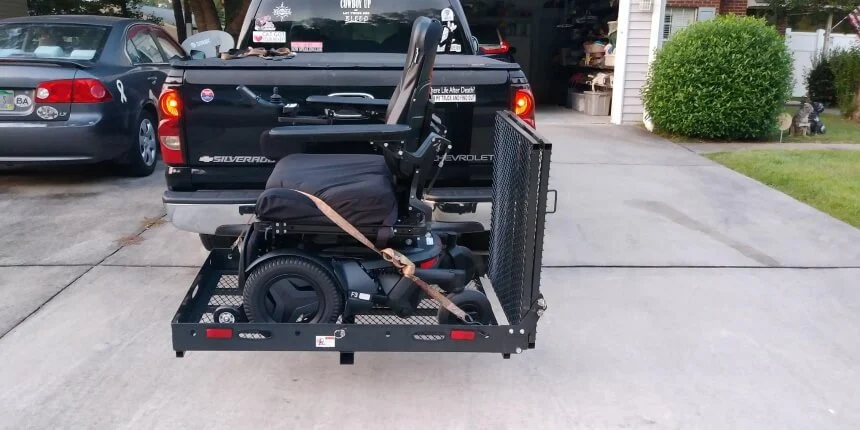
You never know when you might need to move something heavy, so make sure you find a carrier with a high weight capacity.
If you’re looking to buy a wheelchair carrier, check its weight capacity. Why? Because the last thing you want is to be stuck with a carrier that can’t handle the weight of your wheelchair. We recommend the Silver Spring SC500-V3 Wheelchair Carrier covered above as the best option for most people: it has a weight capacity of 500 pounds!
Size
When buying a wheelchair carrier, you should check out the size. The size of the carrier is pretty crucial because it determines what can fit in there and how much it can carry. For example, if you’re going to need to carry something longer or wider than 4 feet (like a surfboard), you’ll want a giant carrier. If you just need to carry a few bags of groceries, then something smaller will do just fine. When looking for the proper size, check out how many cubic feet the carrier has (the amount of space inside). The Ultra-Tow Aluminum Hitch Cargo Carrier covered above measures 60 x 30 x 4 inches, which is plenty big enough for most people’s needs.
Weight
If you’re looking for a wheelchair carrier, you want to make sure you get one that will be able to hold your wheelchair in it. But that’s not all! You also need to consider weight. That’s because the weight of your wheelchair carrier will affect how easy it is to move around with it. And if you have trouble lifting heavy objects, this may be an essential factor for you!
The CURT 18112 Carrier measures 63 pounds, which is relatively light compared to other carriers on the market. But don’t worry—we’ve made sure that there’s nothing flimsy about this product; the wheelchair carrier is made of thick material to withstand even the roughest terrain.
Material
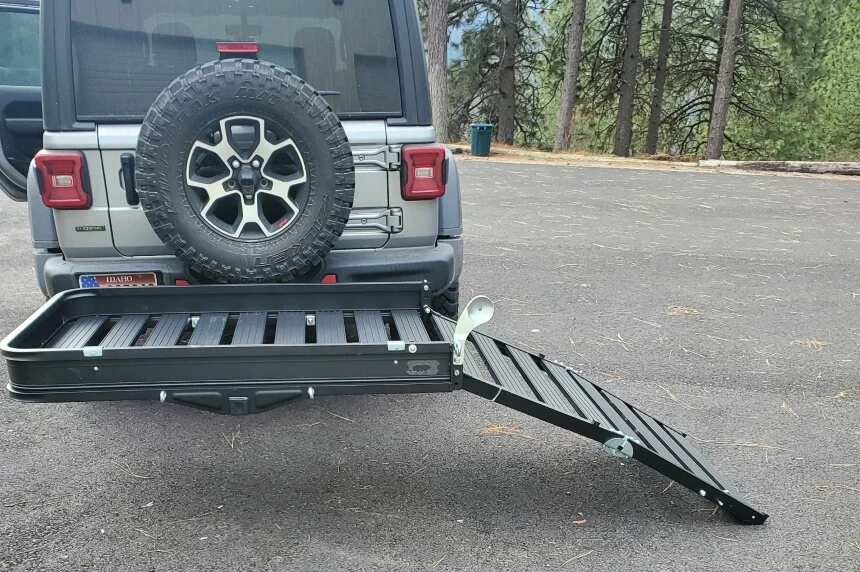
There are several different kinds of materials used in making wheelchair carriers—including aluminum and steel—but aluminum is generally lighter and more durable than steel.
Steel is more expensive than aluminum (and can get rusty over time). If you’re looking to save money while still getting a durable product that won’t rust or corrode quickly, consider looking at the Guide Gear Vehicle Carrier reviewed above. It’s made of aluminum and is lightweight, corrosion-resistant, and rustproof—all at an affordable price!
Design
When you’re looking to buy a wheelchair carrier, there are two main things you need to consider: design and function. Design is important because it can determine how much space you have available for your vehicle and whether the carrier will fit properly on your car. When it comes to function, it’s essential to know that your carrier will be able to carry everything you need it to carry—and more! The CURT 18112 Carrier covered above has a weight capacity of 500 pounds. It can hold up several wheelchairs or scooters at once with such a capacity. It also has a built-in ramp that can be folded in half vertically, making it easy to store when not in use.
Construction
One of the most important things to consider when buying a wheelchair carrier is it’s well-built. This factor will ensure that your wheelchair is safe and secure while on the road. It should also have some weatherproofing, so it can withstand any conditions thrown at it. Our top pick in this category is HECASA Mobility Carrier Wheelchair because it has heavy-duty construction and weather resistant steel construction





